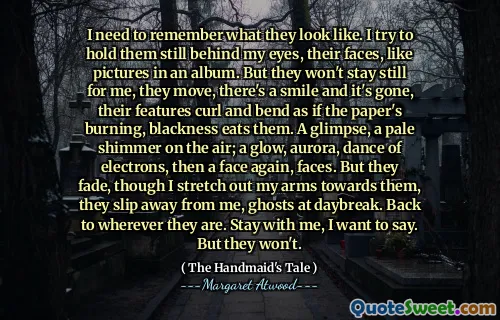Better it never means the best for everyone {...} but always, for some, it means the worst.
In "The Handmaid's Tale," Margaret Atwood explores the complex nature of progress and improvement, suggesting that advancements in society do not necessarily benefit everyone equally. While some may find improvement or opportunity in changes, there are always others who experience the negative consequences. This duality highlights the inequalities embedded in societal shifts and challenges the notion that progress is universally positive.
The quote emphasizes that what is considered "better" for some can simultaneously lead to detrimental effects for others. Atwood's narrative illustrates how societal reforms or new ideologies can perpetuate suffering and oppression, particularly for marginalized groups. This serves as a poignant reminder of the complexities surrounding social change and the importance of considering diverse perspectives in discussions about progress.






